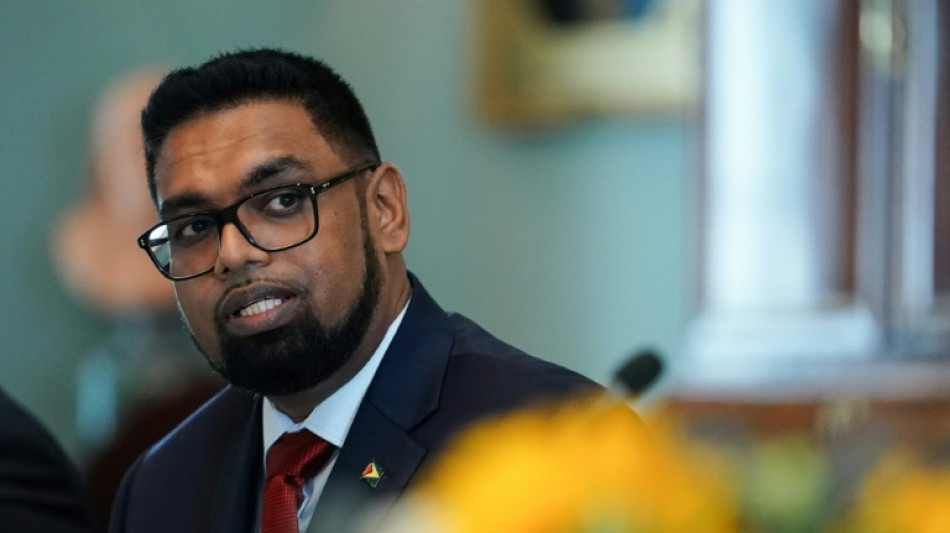
Guyana's President Irfaan Ali: oil industry 'puppet' or visionary?

Irfaan Ali, in office since 2020, is the first Guyanese leader to benefit from the South American country's massive oil reserves, which he leveraged to claim a second presidential term.
Guyana was recently found to have the biggest known crude reserves per capita in the world, and the state budget has quadrupled to $6.7 billion since production began in 2019.
It has allowed Ali to boost spending on infrastructure and social programs, and to campaign on promises to "put more money in your pocket."
At the age of 45, he claimed a second five-year term Wednesday before official results from Monday's election were published.
Venezuela's President Nicolas Maduro calls Ali "a puppet of ExxonMobil," the main oil operator in English-speaking Guyana -- a former British and Dutch colony.
Undeterred, Ali has pressed on with promises of development that will benefit all Guyanese -- among the poorest of Latin Americans.
"We have delivered. You can trust us," he repeated on the campaign trail, pointing to numerous infrastructure projects, tax cuts and expanded social programs.
His detractors accuse Ali of window-dressing and "ribbon-cutting."
- Defender of Essequibo -
From a Muslim background and Indian origins like the majority of Guyana's population, Ali was born to a couple of teachers on April 25, 1980, in a village on the opposite bank of the Demerara River from the capital Georgetown.
He studied in Britain and Jamaica, earning a doctorate in urban planning and regional development.
Ali was first elected to parliament in 2006, serving later in several ministerial positions in governments led by his center-left People's Progressive Party.
It is widely believed he was handpicked as the candidate for 2020 elections by the party's general secretary Bharrat Jagdeo -- himself a former president and still considered by many to be Guyana's most powerful man.
Ali is married, has two children, and likes to point to the bright future that oil revenues can bring for the country's young generation.
Ambitiously, he seeks to achieve this while also protecting the rainforest that covers 95 percent of Guyana and serves as a source of income through carbon credits.
On the international stage, Ali has positioned himself as a staunch defender of the oil-rich Essequibo region administered by Guyana but claimed by neighbor Venezuela in an ever-escalating territorial row.
Essequibo holds much of the oil on which Guyana is planning a more glorious future.
Ali has stood firm in the face of repeated Venezuelan threats to Essequibo, winning him the backing of many compatriots.
"We will continue to seek diplomatic solutions, but we will not tolerate threats to our territorial integrity," he vowed in March.
The territorial dispute is pending before the International Court of Justice in The Hague.
Ali has embraced closer defense cooperation with the United States, and earned Caracas's ire by welcoming a recent deployment of US warships in the Caribbean in an anti-drug operation Washington linked to a cartel it said was controlled by Maduro.
Ali's administration has been accused of corruption by the opposition, and observers from the European Union and US-based Carter Center pointed to state resources being used for campaigning in Guyana's latest election, which gave the ruling party an unfair advantage.
F.Hammond--TNT